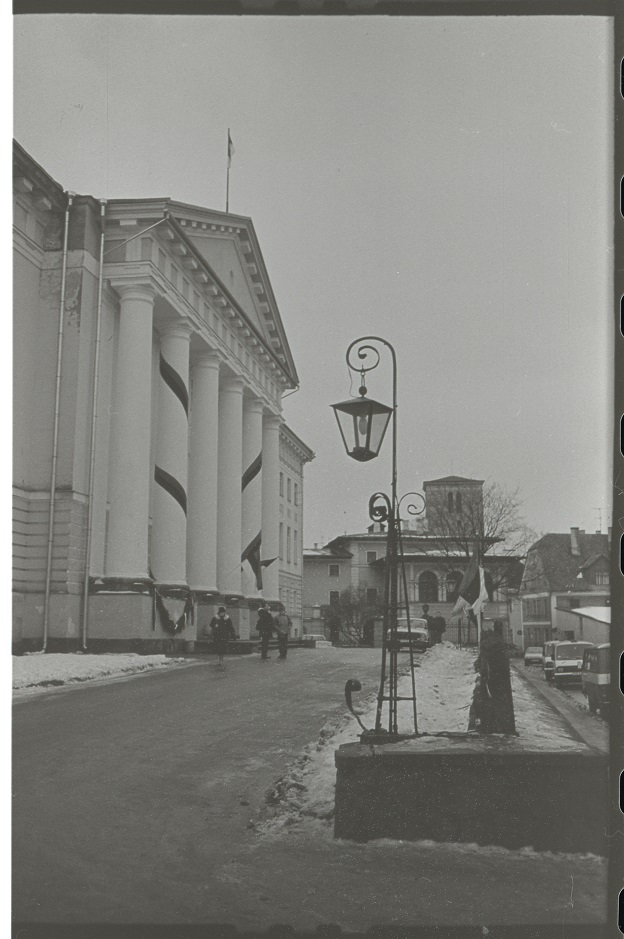Liidia Poska-Teiss, esimene eestlasest arengubioloog. Liidia Poska-Teiss: the first Estonian developmental biologist
DOI:
https://doi.org/10.15157/tyak.v0i47.16181Abstract
Liidia Poska Teiss (1888–1956) came from an outstanding Estonian
family. Her uncle was the first Estonian foreign minister who signed
the peace treaty with Russia in 1920 that won Estonia de facto independence.
Poska-Teiss received her university-education in St. Petersburg at
the Higher Women’s Courses in Natural Sciences of M. A. Lokhvitskaya-
Skalon. Already at the third year of her studies she started to
work as an aid of a histology assistant at the laboratory of Professor
Valentin Dogel (1882–1955) at the University of St. Petersburg. She
continued working as an assistant after graduating from the institution
in 1914. In 1917 she also became an assistant at the psycho-neurological
institute of Vladimir Bekhterev (1857–1927). In St. Petersburg,
Poska-Teiss started her scientific career, which enveloped the
fields of histology, cytology and embryology. In particular, she worked
with the epicardium of the heart tissue (formation of nuclei in epithelial
cells).
After the Russian Revolution of 1917 Poska-Teiss returned to Estonia
and applied for a position at the University of Tartu opened in
1919 as an Estonian-language facility of higher education. She became
an assistant at the Zoology Department of the Faculty of Mathematics
and Natural Sciences. She continued her scientific research
and visited Berlin in 1923, where she studied under the instruction
of the histologist Rudolf Krause (1865–1939) and embryologist Franz
Keibel (1861–1929). In this period, her main topic was karyology—
the study of the structure and function of cell nuclei.
In 1928 Poska-Teiss got an assistant’s position at the Histology
Department of the Medical Faculty. The head of the department Harry
Kull (1886–1933) was an outstanding histotechnician and Poska-
Teiss also contributed to this field.
In 1930 Poska-Teiss defended her Ph.D. thesis titled Spermatogonien
von Bufo vulgaris Laur, und ihr Vergleich mit larvalen somatischen
Zellen desselben Tieres, contributing to the contemporary
discussions on the issue of the persistence of chromosomes.
In 1938 Poska-Teiss applied for the position of assistant professor.
The following year she was granted the position of an assistant professor
in histology. Her further career was interrupted by the Soviet
occupation and annexation of Estonia in 1940, which was soon (in
1941) followed by the German occupation. The latter ended in 1944
when the Soviet authorities returned. Poska-Teiss was named a professor
at the Department of Darwinism and General Biology.
In the following years, the career of Poska-Teiss was controversial.
On the one hand, the Soviet system supported her career, as women
were promoted according to official rhetoric. On the other hand, due
to her scientific specialisation she became a target of ideological attacks
caused by Stalinist campaigns of pseudo-teachings in biology
(in broad terms known as Lysenkoism).
In such circumstances, Poska-Teiss suffered under a lot of mental
stress in the final years of her life. Yet, she invoked interest in her
scientific field among many disciples, who have later made Estonian
cell and molecular biology world-famous.

